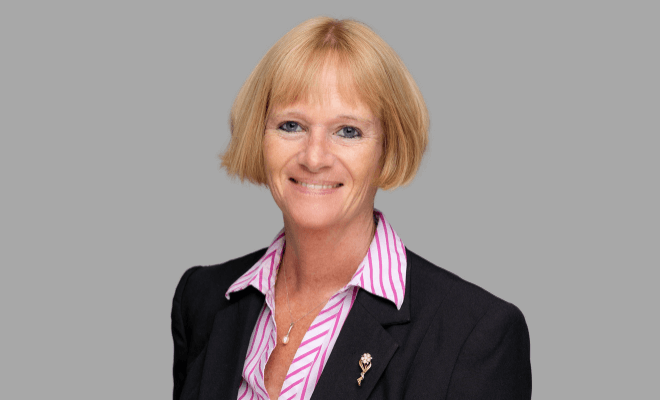Wills
No matter how complex or sensitive your affairs, our experts will ensure everything is arranged as you want.
Wills
Experts in writing and executing Wills, administering Trusts, Probate and Disputes
Wills play a crucial role in ensuring your assets are distributed according to your wishes after your death. However, if they are poorly written or unclear, they can lead to disputes and unnecessary tax burdens.
We have considerable experience in will-writing, estate planning and administration to ensure your assets are protected and your objectives are achieved. Our highly skilled private client solicitors are accredited by the Law Society and have been supporting individuals and families in Hertfordshire, Bedfordshire, London and beyond for many decades.
We are also consistently ranked in the top-tier of prestigious independent directories such as Legal 500 and Chambers UK for our exceptional personal legal advice and the service we provide to our clients.
We strive to make the process of creating wills as easy and watertight as possible. Whether you require straightforward family arrangements or a more intricate structure involving trusts to mitigate inheritance tax, our expert team will guide you through the options with care and expertise.
Many people feel understandably daunted by the prospect of making post-death arrangements. However, without a will the Intestacy Rules will dictate the way your assets are distributed, which may not align with your wishes.
Rest assured that regardless of the complexity or sensitivity of your affairs, we can craft a will that sets out your wishes. We will work closely with you to gain a comprehensive understanding of your assets and expectations, offering personalised advice and tailored solutions.
We can also collaborate with specialist colleagues in our Commercial Litigation team to identify potential problems early on and proactively address them on your behalf.
As skilled and empathetic conciliators, we also act for claimants, defendants, executors and administrators involved in wills, probate and administration disputes. We understand the emotional nature of such disagreements and can support you with practical and straightforward advice.
Contact a member of the team in St Albans, Harpenden or Luton to discuss how our wills specialists can help you plan for the future with peace of mind.
WHAT OUR CLIENTS SAY
OUr Private Client team
Meet our private client Partners
Insights
Latest private client insights



FAQs
Frequently asked questions
What is a Will?
A Will is a list of instructions telling your Executors what to do with your property when you die. If you make a Will, then it is your choice who will benefit from your estate.
How often should I review my Will?
You should review your Will periodically and update it as necessary, especially if you have a major life event like a marriage, divorce, or the birth of a child or grandchild. It is important to note that unless your Will contains specific wording, a marriage or entry into a civil partnership will automatically revoke (cancel) an existing Will. In any event, it is a good idea to review your Will every few years to ensure that it still reflects your wishes.
Can I cancel (revoke) my Will?
You can cancel your Will by making a new Will, or simply destroying it.
What are Executors?
Executors are the people appointed in your Will to carry out your instructions. Executors collect in all your assets, pay your debts and any gifts of money, transfer any gifts of personal belongings and deal with the remainder – your Residuary Estate – in accordance with your Will. Usually the Executors will ask a solicitor to do the work for them.
How can I minimise the Inheritance Tax payable on my estate for my beneficiaries?
There are several ways to minimise Inheritance Tax (IHT).
One way is to consider lifetime gifting to reduce the size of your overall estate, for example by making use of the annual gift allowance, which allows you to give away up to £3,000 per year without incurring IHT. You can also give away small gifts of up to £250 to as many people as you like without incurring IHT.
Another way to minimise IHT is to make use of trusts. Placing assets into a trust can help to reduce the value of your estate and therefore reduce your beneficiaries’ tax liability. You can also make use of life insurance policies, which can provide a tax-free lump sum to your beneficiaries.
The way you structure your Will can also minimise IHT, for example by making gifts to charities, or by making sure your lineal descendants inherit your home so that the Residence Nil Rate Band (RNRB) may be available to set against your estate. The best way to structure your Will, of course, depends on your wishes and particular circumstances – it is a good idea to seek professional advice from a solicitor or financial advisor to ensure that you are taking all the necessary steps to minimise IHT, if this is important to you.
What happens if I die without a Will?
Your property will be divided according to certain legal rules (known as the Intestacy Rules). Some of these rules may surprise you. For example, the share your spouse or civil partner gets may not be enough to give your spouse or civil partner the outright ownership of your home. Also, if you are not married or in a registered civil partnership, but have been living with someone, the person you are living with may not get anything.
Can I change my Will?
Yes, at any time, by making a fresh Will or by signing a document called a Codicil which changes only the appropriate parts of your Will. A Codicil must be prepared, signed and witnessed in a particular way. You do not need to change your Will if you or any person named in your Will changes their address.
Does marriage, entering into a civil partnership, divorce or dissolution of a civil partnership affect my Will?
A Will is cancelled automatically if you get married or enter into a civil partnership after you have made it unless it contains specific wording to prevent the revocation. If you get divorced or your civil partnership is dissolved after you have made your Will, any provisions made in favour of your spouse or civil partner will be cancelled unless the Will says otherwise.
Whom should I appoint as Executors?
The people you trust most to carry out your wishes. Any adult person may be appointed as an Executor. One of them could be the person who is going to receive the biggest share, such as your spouse or civil partner. Relatives, close family friends and professionals (such as solicitors) can be Executors. It’s easy to appoint another Executor later if you want to do so by signing a Codicil.
COntact
Request a call back
We’ll arrange a no-obligation call back at a time to suit you.





